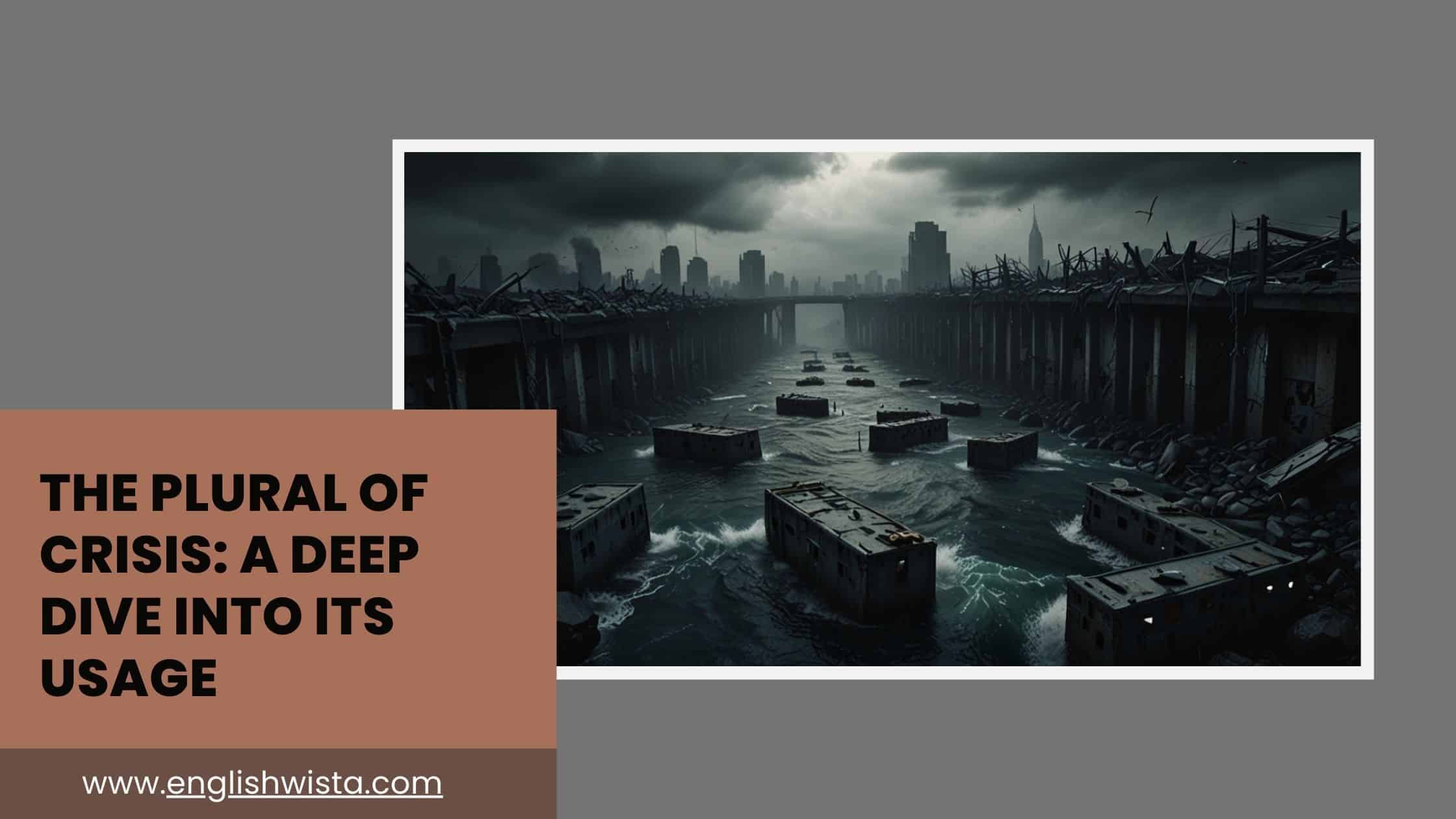Imagine you’re chatting with friends about difficult situations and say, “There were so many crisis yesterday.” Someone might gently correct you, “Don’t you mean crises?” This small moment highlights a bigger question: Why does the plural of crisis sound so different, and how do we use it correctly?
Language can feel tricky, especially when irregular plurals like this pop up. But don’t worry! By the end of this article, you’ll feel confident using crisis and crises like a pro. Let’s dive in and break it down step by step.
What Is the Plural of “Crisis”?
The plural of crisis is crises (pronounced KRAI-seez). This might feel unusual at first because it doesn’t follow the typical “add an -s or -es rule” for plurals. Instead, it changes form because crisis comes from Greek, not English.
In short:
- Singular: crisis
- Plural: crises
Here’s an example:
- Singular: The country is facing a major crisis.
- Plural: Over the years, they’ve navigated several crises successfully.
Why Does “Crisis” Become “Crises”?
English borrows words from many languages, and crisis is one of those imports. It originally comes from Greek, where words ending in -is often change to -es in the plural. This rule stuck when the word entered English.
Other examples of this pattern include:
- Analysis → Analyses
- Thesis → Theses
- Basis → Bases
These endings might feel unfamiliar at first, but with practice, they’ll become second nature.
How to Use “Crisis” and “Crises” in Sentences
Let’s see how these forms work in real-life situations.
Singular Usage:
- The company is experiencing a financial crisis.
- After the storm, the city declared a state of crisis.
- This personal crisis taught her valuable lessons.
Plural Usage:
- The organization dealt with multiple crises during the pandemic.
- Natural disasters often lead to humanitarian crises.
- Political crises can destabilize entire regions.
Notice how crisis refers to one specific problem, while crises talks about multiple issues.
Is “Crisis” Singular or Plural?
It’s easy to mix this up! Let’s clarify:
- Crisis is singular (one problem or emergency).
- Crises is plural (more than one crisis).
Think of it like this:
- A crisis is like a single storm, while crises are multiple storms coming one after the other.
Common Mistakes to Avoid
Even native English speakers sometimes stumble here. Here are a few common mistakes and how to fix them:
- Mistake: Saying “crisises” as the plural.
- Fix: Use “crises” instead.
- Mistake: Using “crisis” when talking about more than one problem.
- Fix: Switch to “crises” for multiple issues.
- Mistake: Mispronouncing “crises” as KRAI-sis-es.
- Fix: It’s pronounced KRAI-seez.
Practice saying these aloud to get comfortable with the correct forms.
Where Did the Word “Crisis” Come From?
The word crisis has a fascinating origin! It comes from the Greek word krisis, meaning “decision” or “turning point.” In ancient times, it referred to critical moments in medicine or politics when decisions had to be made.
Over time, the meaning expanded to include any urgent or dangerous situation requiring immediate attention. Today, we use crisis to describe everything from personal challenges to global emergencies.
How Does “Crisis” Compare to Other Words?
Let’s see how crisis stacks up against similar words.
- Emergency vs. Crisis
- An emergency is an urgent situation that needs action right away (e.g., a fire).
- A crisis can be broader, often involving a turning point or critical decision (e.g., a financial meltdown).
- Disaster vs. Crisis
- A disaster is a sudden, catastrophic event (e.g., a hurricane).
- A crisis is often a prolonged or evolving problem (e.g., a political crisis).
Real-Life Examples of “Crises” in Context
Let’s explore a few scenarios to understand how crises works:
- Example 1: “The company faced several crises, including cybersecurity breaches and financial losses.”
(Multiple challenges over time.) - Example 2: “Global crises like climate change and pandemics require international cooperation.”
(Ongoing worldwide issues.) - Example 3: “In her career, she navigated personal crises with resilience and grace.”
(Different personal challenges.)
Fun Fact: Collective Nouns and “Crisis”
Did you know that English has quirky collective nouns for groups of things? While crisis doesn’t have an official collective noun, you could get creative and call a group of crises a “cascade” or “storm.”
For example:
- “A cascade of crises overwhelmed the organization.”
It’s not official, but it’s a fun way to add flair to your writing!
How to Remember “Crisis” vs. “Crises”
Here’s an easy tip:
- If it’s just one problem, think of crisis as a single lightning bolt.
- If it’s multiple problems, imagine crises as a thunderstorm with many bolts.
Practice this analogy, and the distinction will stick in your mind.
Conclusion: Mastering “Crisis” and “Crises”
Now you know the ins and outs of crisis and crises! To recap:
- Crisis is singular, while crises is plural.
- The plural form comes from Greek and follows the -is → -es pattern.
- Real-life examples help make these forms easier to understand.
Next time you’re talking about a tough situation, you’ll know exactly which word to use. Language quirks like this might seem tricky, but with a bit of practice, they’re easy to master.
Keep learning, keep practicing, and soon, irregular plurals like crises will feel as natural as regular ones. You’ve got this!



